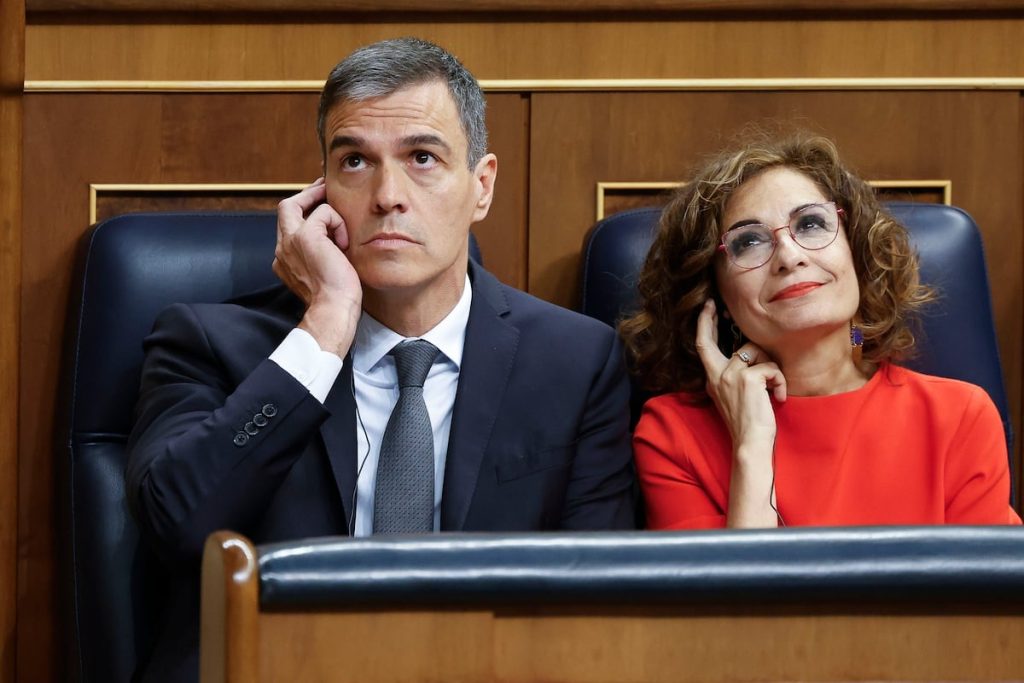In a bombshell revelation in Congress, it was revealed that Alberto Núñez Feijóo did not call for the resignation of Pedro Sánchez. During Wednesday’s parliamentary session, questions from Popular Party deputies flooded the Government, and Begoña Gómez’s name was only mentioned in passing. The clash in Parliament was less abrupt than usual, as negotiations to renew the General Council of the Judiciary (CGPJ) were reopened. The most concerning attack on the president came from those who had supported him. Junts expressed discontent over Sánchez’s attempt to negotiate with ERC for the investiture of Socialist Salvador Illa as president of Catalonia. They made it clear that they were there for Catalonia and its people, not for Sánchez’s benefit.
Carles Puigdemont had criticized Sánchez’s negotiations on social media, and Junts’ spokesperson, Miriam Nogueras, echoed these sentiments in Congress. They questioned whether they deserved financial compensation only if Illa became the president of Catalonia. Nogueras rejected the idea of “unique funding” for Catalonia, claiming it is a just demand for what is rightfully theirs. She alluded to the historical issue of fiscal exploitation without explicitly using those terms, citing figures that show Catalans lose money annually compared to other regions in Spain. Sánchez responded by acknowledging Catalonia’s need for better funding and reiterating his commitment to fulfilling this promise, which was part of his agreement with ERC during his investiture.
Feijóo did not delve into the issue of Catalan funding, nor did his colleagues, aside from some jabs at the government’s actions. The main issue the leader of the Popular Party brought up was the Twitter feud involving Minister of Transport, Óscar Puente. Feijóo called for the resignation of the Minister, highlighting the government’s lack of democratic regeneration. Sánchez attempted to shift the focus to the negotiation regarding the CGPJ, questioning Feijóo’s loyalty to the Constitution amidst opposition from party leaders like Aznar and Abascal. Feijóo proposed his own regenerative measures, emphasizing the need to remove Socialist Party members from key positions and prevent transitions from minister to other roles.
The topic of José Félix Tezanos’ role at the CIS resurfaced during discussions with Minister of Presidency and Justice, Félix Bolaños, but it was evident that the Socialists remained loyal to their comrade sociologist despite past polling inaccuracies. The questions from the Popular Party covered a variety of topics, showing a departure from the usual focus on government corruption. Economic performance and train punctuality were among the concerns raised. The tenth anniversary of King Felipe VI’s ascension to the throne was also mentioned, with contrasting opinions expressed by different political parties.
Overall, the parliamentary session saw a mix of topics and debates, reflecting the current political climate in Spain. The tensions between the government and opposition parties were evident, particularly regarding issues such as Catalan funding and the monarchy. Despite differing opinions and confrontations, the session highlighted the diverse perspectives within Congress and the ongoing challenges facing the Spanish political landscape.


